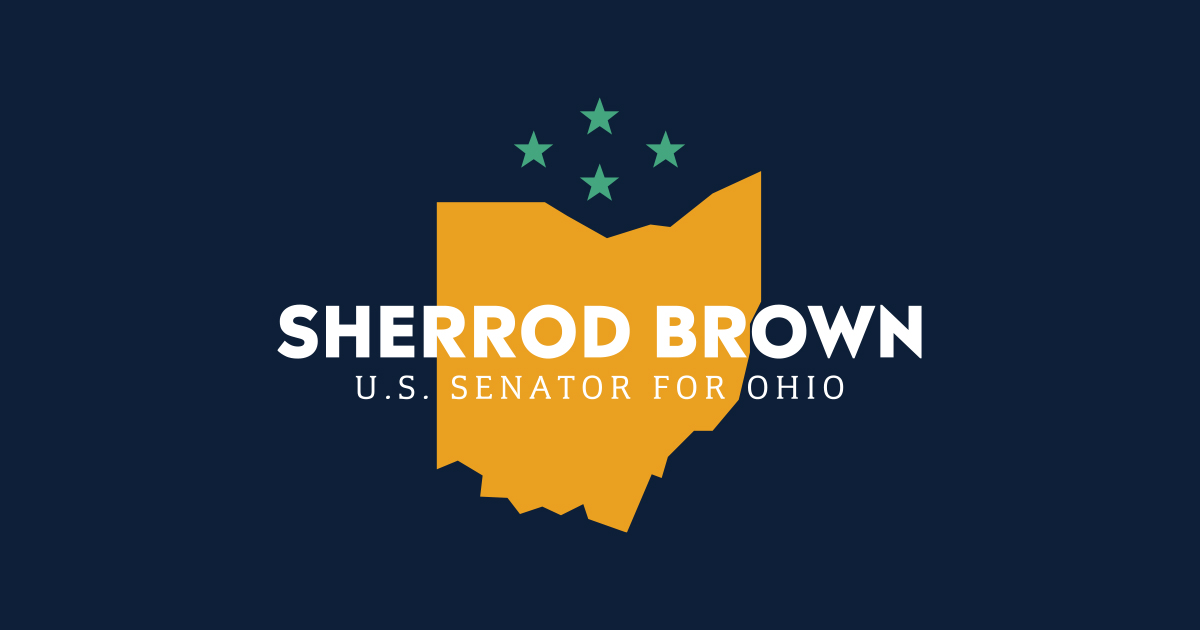Source: United States Senator for Ohio Sherrod Brown
COLUMBUS, OH — In Case You Missed It: A two part Columbus Dispatch article highlighted the predatory practice of medical “clawback” fees that Pharmacy Benefit Managers (PBMs) use to raise the cost of prescription drug prices. PBMs, which operate as middle-men between drug manufacturers, insurance companies, and pharmacies, are currently not required to disclose all discounts they receive or pass full discounts on to customers. Brown has led efforts in the Senate to lower drug prices and increase transparency with PBMs and support community pharmacies and the patients they serve.
“Today, this money-making maneuver by the middlemen in America’s drug supply chain is raising the cost of prescription drugs you buy and hurting your community pharmacy’s chances of staying in business — especially in rural and other underserved areas,” wrote Darrell Rowland in part one of his story for the Dispatch.
“It comes down to this: If you own a pharmacy you either take the deal offered by the PBMs — clawbacks clause and all — or you can’t get prescription drugs for a large percentage of your customers. And that means you go out of business — which is happening frequently to pharmacies throughout the U.S.,” Rowland continued in part two of his story for the Dispatch.
In 2019, Brown secured the inclusion of key provisions in the bipartisan drug pricing bill that passed out of the Senate Finance Committee to increase transparency requirements for PBMs and ban the predatory practice of “spread pricing.” Building on this progress, Brown introduced bipartisan legislation in June to protect consumers and small businesses by holding PBMs accountable for retroactively assessing fees on pharmacies. The Pharmacy DIR Reform to Reduce Senior Drug Costs Act would ensure that all pharmacy price concessions are assessed at the point of sale and eliminate the retroactive nature of direct and indirect remuneration (DIR) clawback fees imposed by PBMs. The Centers for Medicare and Medicaid Services (CMS) estimates this change will save Medicare beneficiaries an estimated $7.1 to $9.2 billion in reduced cost sharing as a result of this policy change.
Brown is dedicated to passing comprehensive legislation to hold large pharmaceutical companies accountable for high prices and bring down the costs of prescription drugs. In May, Brown reintroduced the Affordable Medications Act, a bill that “combines just about every policy idea drug lobbyists hate,” and proposes to increase transparency for drug companies that are setting exorbitant prices, end the restriction that prevents the federal Medicare program from using its buying power to negotiate lower drug prices for its beneficiaries, and curb drug company monopoly practices that keep prices high and prevent less expensive generics from coming to the market.
Read part one of the Dispatch’s full article HERE or read an excerpt below:
‘I Just See Fraud All Over This’: Insiders Detail How Clawbacks Drive Up Drug Prices, Hurt Pharmacies
By: Darrel Rowland
July 15, 2021
Elie Bahou says he remembers well when the order came down about a decade ago from the front office of his multibillion-dollar employer: Come up with new tactics to make more money.
“We were sitting around one day looking for ways to generate more revenue and the C suite kept pushing us for more and more,” Bahou recalled. “That was my employer trying to squeeze more and more and more dollars.”
Thus was born a concept you’ve probably never heard of: clawbacks.
Today, this money-making maneuver by the middlemen in America’s drug supply chain is raising the cost of prescription drugs you buy and hurting your community pharmacy’s chances of staying in business — especially in rural and other underserved areas.
So why should you care?
“Pretty much because you’re getting ripped off,” said Delaware state Auditor Kathleen McGuiness, whose office completed a study in June on the lack of transparency and accountability in drug pricing.
Another reason that might pique your interest: This type of profit maximization, which so far has escaped substantive public scrutiny, is being quietly investigated by legal authorities in multiple states, sources tell The Dispatch.
Bahou said he helped develop clawbacks during his six years as senior vice president for network relations and contracting at OptumRX, working out of corporate headquarters in Irvine, California, for the PBM subsidiary of UnitedHealth Group. The latter is the nation’s biggest health insurer by far, reporting more than a quarter trillion dollars in annual revenue.
…
Read part two of the Dispatch’s full article HERE or read an excerpt below:
Seniors’ health care suffers due to skyrocketing fees for prescription drugs, pharmacists say
By: Darrel Rowland
July 15, 2021
It seemed like such a good idea at the time.
U.S. pharmacies collecting millions of Medicare dollars would be offered incentives to do more than simply push pills. If they don’t meet the new standards, such as making sure their patients receive their medications and get flu and pneumonia shots, they’ll have to give up some of thatMedicare funding.
The concept featured Direct and Indirect Remuneration fees, or DIR fees. Such fees “were originally supposed to be a way to offer incentives instead of a way to ‘claw back’ money from pharmacies,” the Pharmacy Times noted.
Despite this intent, the incentives never materialized. Instead, DIRs evolved into a system that today offers pharmacies only penalties through higher and higher fees — even if every performance standard is achieved, pharmacists say. The sole “incentive” is a small reduction in those fees for meeting the standards.
That reality has brought accusations from a wide range of Medicare advocates and pharmacy supporters that the setup gouges pharmacies while benefiting health insurers and their pharmacy benefit managers that set nebulous performance standards without input from federal health officials.
In response, these insurers and drug supply chain middlemen PBMs — which are often the same company in America’s highly consolidated health care market — say they are only doing what the federal government allows them to do under a key 2014 rule change.
…
###
